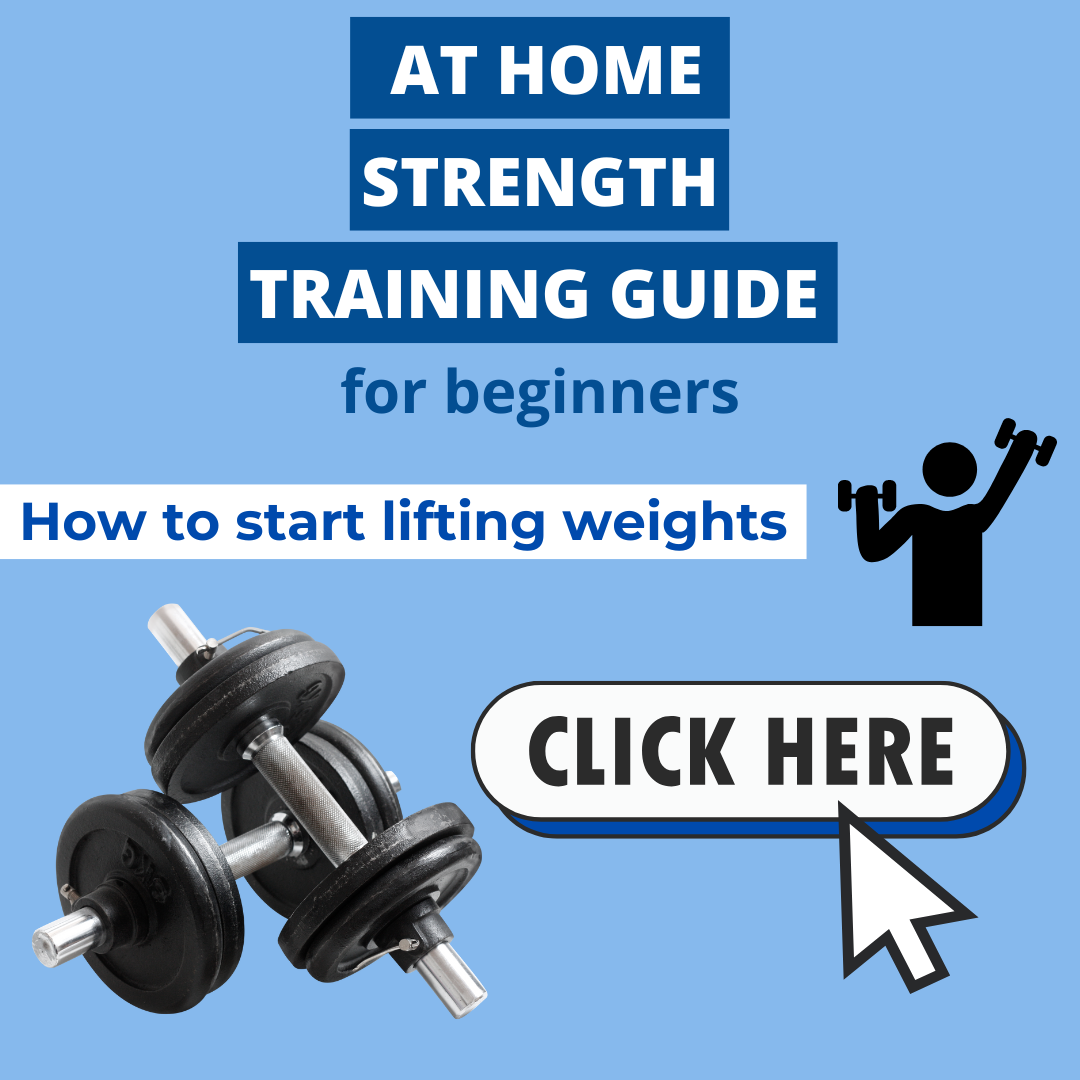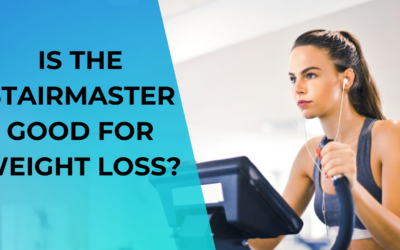Should You Eat Back Exercise Calories?

Apps like MyFitnessPal come in clutch for counting calories.
You have an easy way to log your food to ensure you’re hitting your calorie targets.
There’s just one major aspect that’s causing some confusion…
Should you eat back exercise calories?
On one hand, you want to say yes, you should be.
Since you’re burning calories, it only makes sense oyu deserve more food.
But then again, if you eat back exercise calories, you’re not too sure what that means for your calorie deficit.
So let’s talk about it, whether or not you should be eating back the calories you burn from exercise.
What does it mean to eat back exercise calories?
There’s a section in MyFitnessPal where you can add in your exercise and it’ll calculate how many calories you burned.
It’ll then “give you those calories back,” encouraging you to eat more because of the calories you burned from exercise.
I’ve circled what I’m talking about in red below:

What happens if you eat back the calories you burn?
The short answer is no, you should NOT eat back exercise calories.
Actually, it’s one of the biggest weight loss mistakes you can make.
When you eat back exercise calories, you end up consuming more calories than you need, which can take you out of being in a calorie deficit (the one thing you need for weight loss).
Let’s break down why that is…
Why you shouldn’t eat back exercise calories
1. You’re not burning as many calories as you think you are
I don’t know what’s more inaccurate….
Trying to hit a bullseye in darts while blindfolded, or your smartwatch.
Because your smartwatch, Fitbit, and calorie trackers like MyFitnessPal are WILDLY inaccurate (research shows as much as 93%) when it comes to measuring calories burned 🤯
So, basically…That sweaty workout session your Fitbit says burned 300 calories was more like 100-150 calories.
And that still might even be a generous estimate.
Here’s why calorie trackers are so inaccurate–
Calories you burn from exercise aren’t this one-size-fits-all thing.
There are a bajillion different things that go into the number of calories YOU, as an individual, burn.
And there’s just no way an app or smartwatch could account for them all.
For example, let’s say you’ve been working hard on a strength training plan while I’ve been sitting on the sidelines eating Butterfingers.
You’ll be fitter, leaner, and have more muscle on your frame than me, which means your body will burn more calories (the more muscle you have, the more calories you burn).
There’s not a tracker out there that can measure your exact lean mass at all times to come up with the number of calories you’d burn.
Or, here’s another one…
You and I, we decide to get a cardio workout in.
And before you ask, no, it’s not fasted cardio.
Instead of the typical treadmill, elliptical, or StairMaster, we decide to take a few laps around the pool.
Just pretend we’re the same gender, age, height, weight, activity level, etc.
The only difference is you swim a few times a week.
And me, well…
I’m about as useful as a 6-year-old with floaties in the beginner guppies class.
Who would burn more calories?
I would.
Why?
Because my body isn’t accustomed to swimming workouts, I’m not as conditioned.
I’ll have to try harder and struggle to keep up, which ends up burning more calories.
Again, this is also something your smartwatch or calorie tracker can’t possibly account for when determining calories burned from exercise.
To make a long story short…
If you were to eat back exercise calories under the false pretense your workout “has you covered” (i.e. that whole “my workout burned a lot of calories so I deserve this food” feeling), you can end up going over on your calories and offset any weight loss.
Or worse…It might even lead to weight gain.
2. How much you exercise is already factored into your calorie deficit
The second reason you don’t want to eat back exercise calories is because you should’ve already accounted for it back when you figured out your calorie deficit originally.
You probably used a TDEE calculator like this one that asked you about your activity level.
It gave you options like light exercise, moderate exercise, heavy exercise, etc.
Remember that?
Well, since your calorie deficit already factors in your activity level, the exercise calories you log into apps like MyFitnessPal or your smartwatch are just extra.
Imagine what consuming those extra exercise calories (which we’ve already established are a lot higher than what they should be) would do to your calorie deficit.
Repeat after me…
When I eat back exercise calories, I’m consuming more calories than I should be.
What should you do instead of eat back exercise calories?
It’s always calories, calories, calories.
What can I do to burn the most calories possible?
Well, I have some news for you…
Calorie burn is pretty much irrelevant when it comes to sculpting your dream physique.
For example, lifting weights doesn’t burn many calories at all.
But you know what it does do?
It helps you build and preserve muscle, which is key to fat loss.
Muscle also gives your body shape, tone, definition, and most importantly, helps you avoid the “skinny fat” look.
Instead of focusing on how many calories you burn, put your energy toward progressively lifting heavier and heavier weights over time and improving workout performance.
Those two things are much better indicators you’ll build the muscle or lose the fat you want.
Wrap up: Should you eat back active calories?
You’ve learned about the two main reasons you should NOT eat back exercise calories.
- Calorie tracker apps and smartwatches are super inaccurate and greatly exaggerate how many calories you’re burning.
- You’ve probably already factored exercise in when figuring out your calorie deficit initially.
If you’re counting exercise calories, you’ll end up consuming more calories than you need for weight loss.
Also, don’t stress so much about calories burned during exercise.
There’s no real way to measure it anyway, and it’s not a good predictor of weight loss success.
Think more about ways you can improve workout performance.
- Are you progressively increasing the amount of weight you’re lifting over time?
- Can you increase training volume and add some more sets/reps to your workouts?
- What about being able to do more push-ups or hitting a pull-ups goal?
When you focus on getting better and improving, the results you see in your body (i.e. fat loss, building muscle, etc) end up taking care of themselves 💪
Should you eat back exercise calories FAQs
Why does MyFitnessPal add calories when you exercise?
MyFitnessPal is an awesome weight loss tool but it does have its shortcomings.
And this is one of them…
Basically, it’s trying to adjust your daily calories to reflect how much you’re working out.
Because, in theory, the more you workout, the more you can eat.
But there are two problems with this:
- There’s no way to accurately measure how many calories you burn.
I mean…
How can you expect MyFitnessPal to accurately assess how many calories, YOU, as an individual, burn from activities like running, swimming, lifting weights, etc?
Besides, the number of calories you burn isn’t a very good indicator of how you’re doing weight loss-wise.
Improving workout performance and getting stronger mean more than the number of calories you burn.
- You already factored in exercise when you initially figured out your weight loss calories, so you’d be double dipping and consuming more than you should be if you were to eat back exercise calories
Long story short, make sure you don’t eat back exercise calories.
If you are, that’s probably what’s holding you back from being in a calorie deficit.
How many calories should I eat if I workout every day?
- You shouldn’t be working out every single day.
Your body needs time to rest and recover.
3-4 strength training sessions a week, plus making sure to get your daily 7.5-10K steps are plenty.
If you want to add 1-2 LISS cardio sessions for 20-30 minutes each on top of that, go for it.
But anything more than that is overkill.
- In terms of the number of calories you should be eating for weight loss, everyone’s different.
I linked to this post before but I’ll link to it again:
Use this article to figure out your weight loss calories.
Can you eat back the calories you burn in a calorie deficit?
The short answer is no, you don’t want to eat back exercise calories.
When you figured out your calorie deficit originally, it already took exercise into accoun (or, at least, it should have).
So if you were to eat back exercise calories, you’d be consuming more than you need.
There’s also no way to accurately measure how many calories you’re burning throughout a given day.
Don’t think your smartwatch can do this.
They’re extremely inaccurate, and so is MyFitnessPal.

What's up?
I’m Chad, I’m happy you’re here! I’m a certified personal trainer and my goal is to help you form practical, sustainable habits that lead to lifelong fitness results. If you want to lose fat, build muscle, and live a healthier, happier life then you’re right where you need to be. 💪🏾
Free resources
⬇⬇⬇







0 Comments